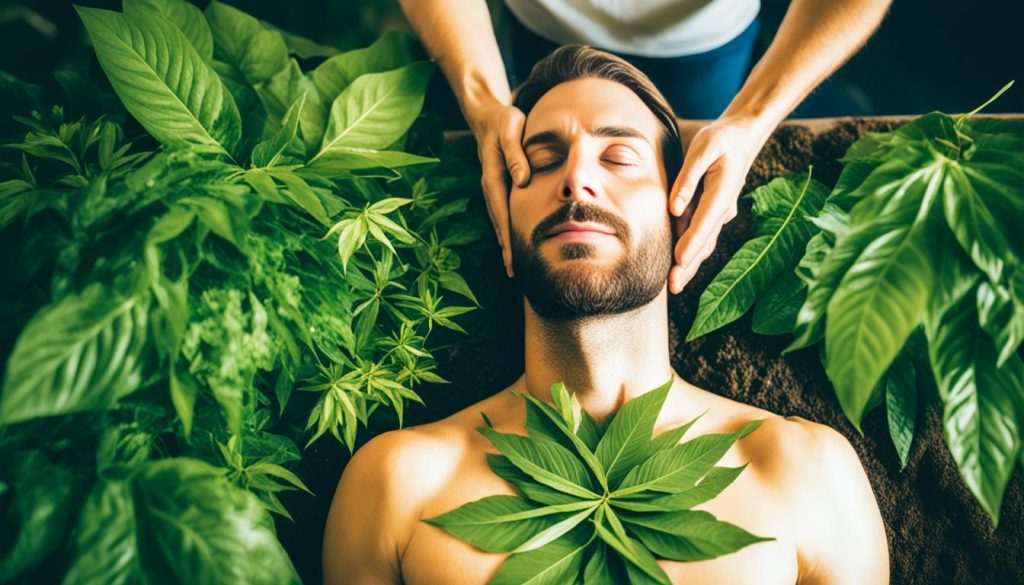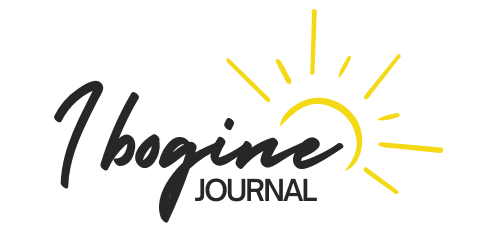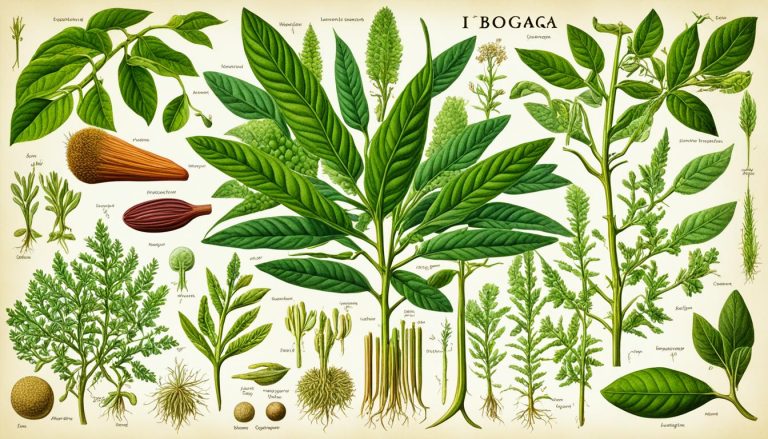What Is Ibogaine Treatment?
The journey towards addiction recovery often unveils various treatment methods, each with unique approaches and outcomes. One such method that has garnered attention is ibogaine treatment. But what is ibogaine treatment? It’s a type of therapy that employs ibogaine, a naturally occurring psychoactive substance extracted from the iboga plant, indigenous to Central Africa. Used in traditional rituals and now in modern settings, ibogaine treatment has sparked interest and controversy in equal measure due to its reported ability to aid ibogaine detoxification and potentially ease the grip of addiction.
The ibogaine therapy process is complex, with proponents touting its efficacy in reducing withdrawal symptoms and cravings associated with opiate addiction. However, in places like the United States, ibogaine remains a Schedule I drug, reflecting questions about its safety and legal implications. Despite this, the quest to understand ibogaine treatment for addiction continues, with research efforts seeking to unlock its mysteries and potential therapeutic benefits.
Key Takeaways
- Understanding ibogaine treatment’s potential in addiction therapy
- Exploring the traditional origins and current ibogaine therapy process
- Identifying the challenges and risks of ibogaine detoxification
- Discussing the hurdles in legitimizing ibogaine treatment for addiction in the U.S.
- Recognizing the need for further research to substantiate ibogaine’s efficacy and safety
Understanding Ibogaine and Its Historical Use
The iboga plant, a fixture in traditional African psychedelic plant medicine, has paved the way for the modern-day exploration of ibogaine treatment benefits. This naturally occurring compound, hailing from a plant steeped in shamanistic rituals, offers a complex pharmacological profile with promise in addiction therapy. Though originally used by indigenous African communities, ibogaine’s therapeutic potential is now being examined in ibogaine treatment centers across various parts of the world.

Despite its historical use, ibogaine remains controversial due to its categorization as a ‘dirty’ drug. This reference is not to its efficacy but rather to its interactions with multiple biological targets, which can result in severe side effects, including heart arrhythmias. Nevertheless, the substance’s effect on SERT—the serotonin transporter—also targeted by common antidepressants, anchors its potential in addressing conditions like addiction and depression.
As modern science seeks to harness ibogaine treatment benefits, there is a vital push to develop derivatives that can avoid the adverse side effects associated with the original compound.
Novelty in this field emerges as researchers use computational docking and virtual molecular screening to create compounds that mimic ibogaine’s action on the brain’s biochemistry. These efforts aim to maintain the therapeutic outcomes yet enhance safety profiles. As a result, although we remain in the infancy of ibogaine’s medical application outside traditional contexts, the push towards harnessing its benefits while mitigating risks continues.
The Pharmacological Basis of Ibogaine Treatment
Exploring the intricacies of ibogaine treatment invites a deeper understanding of its interaction with the serotonin transporter (SERT), a crucial player in maintaining the brain’s chemical balance. This interaction is the cornerstone of ibogaine’s influence on behaviors corresponding to both addiction and depressive symptoms, sparking a conversation about the safety of ibogaine treatment as well as its potential therapeutic benefits.
How Ibogaine Affects the Brain’s Serotonin Transporters
While ibogaine and SSRI drugs both target the brain’s serotonin transporters, there is a marked difference in their specificity and subsequent safety profiles. Ibogaine’s broad action on SERT can inadvertently affect other brain areas, explaining some of the adverse effects noted in certain case studies. Recognizing these risks underlines the necessity of a nuanced approach when considering ibogaine as an alternative to conventional antidepressants.
The Development of New Compounds Inspired by Ibogaine
The quest for safer treatment alternatives has significantly benefited from advances in technologies such as computational docking, which enable scientists to design new molecules with a desired therapeutic profile. Computational studies have identified new compounds that maintain ibogaine’s beneficial effects on serotonin transporters while striving to eliminate the ‘dirty’ aspects of its molecular activity.
Risks Associated with Ibogaine’s ‘Dirty’ Drug Profile
Ibogaine’s non-specificity with serotonin transporters is a double-edged sword, offering the potential for profound therapeutic impact, but also carrying the burden of significant risk, notably concerning cardiovascular complications. Addressing these risks is paramount to ensure the safety of ibogaine treatment in clinical settings, advocating for a cautious and informed therapeutic use.
In conclusion, while the pharmacological effects of ibogaine treatment on serotonin transporters present a promising avenue for addiction and depression management, its ‘dirty’ drug profile necessitates a sophisticated approach to research and treatment, always prioritizing patient safety and well-being.
What is Ibogaine Treatment and Its Legality in the US
The quest for effective treatments for opiate addiction has led to the exploration of various compounds, with Ibogaine being one of the most discussed yet controversial. Despite anecdotal success stories related to ibogaine treatment success rate, the substance’s legalization in the United States remains a complex issue. Its classification as a schedule I drug underscores the federal government’s stance on its potential for abuse and lack of accepted medical use, especially without the endorsement of the FDA.
Ibogaine’s Classification Status and FDA Approval
Presently, ibogaine treatment is in a legal gray area in the U.S., as it is not supported by the FDA, which heightens the understanding around the substance’s regulatory status. Advocates for its utilization cite its potential in addressing severe opiate dependencies, but without official approval, ibogaine treatments remain inaccessible within American healthcare practices. This status raises concerns about the ibogaine treatment side effects, some of which can be life-threatening.
Global Perspectives on Ibogaine Use
Globally, however, the narrative differs considerably. Various countries approach the use of ibogaine with differing levels of acceptance and regulation—a stark contrast to its prohibition in the U.S. For instance, in Mexico, ibogaine is permitted for use in treating opiate addiction, providing a refuge for those seeking treatment avenues considered illegal in their homeland. Such disparities underscore the need for more comprehensive, evidence-based research to accurately determine the therapeutic viability and safety of ibogaine as a treatment for opiate addiction.
Ibogaine’s Role in Addiction Therapy
The journey towards addiction recovery is a complex and arduous path for many, with various substances being investigated for their potential to aid in this process. Among these, ibogaine detoxification has been in the spotlight due to its significant, yet controversial, role in the cessation of opioid addiction. Heralded by some for its ability to interrupt addiction’s relentless grip, ibogaine has shown promise in offering relief from the tenacious symptoms of withdrawal that so often lead to relapse.
Evidence indicates that ibogaine engages with a multitude of neurochemical pathways that contribute to its purported ibogaine treatment benefits. These biochemical interactions seem to create a window of opportunity, a reset, presenting those who strive to overcome opioid dependency with a chance to pursue further treatment unencumbered by the immediate shackles of their addiction. As proponents argue for its holistic benefits, it’s important to underscore that ibogaine is not a panacea; but rather a catalyst potentially initiating the longer journey of recovery and rehabilitation.
Yet, amid these optimistic anecdotes lies a field sown with caution. Ibogaine treatment’s success rate and safety profile have not been firmly established through rigorous clinical trials thus far, which is crucial for both practitioners and patients to navigate treatment with a clear understanding of the risks versus rewards. While the allure of ibogaine’s impact on addiction is compelling, the dialogue remains open, continuing to question its efficacy and applicability in formal addiction therapy. The future of ibogaine as a therapeutic agent awaits the clarity that can only be brought about by thorough scientific inquiry and validated clinical outcomes.
FAQ
What is ibogaine treatment?
Ibogaine treatment involves the administration of ibogaine, a naturally occurring psychoactive substance extracted from the iboga plant. It’s utilized in the detoxification process, particularly for those struggling with opiate addiction, and aims to reduce withdrawal symptoms and cravings.
Can you explain the ibogaine therapy process?
The ibogaine therapy process typically involves a careful screening, followed by a medically supervised setting where ibogaine is administered in a controlled dose. The substance is said to facilitate a psychoactive experience that can offer insight and a reduction in withdrawal symptoms, helping individuals in the early stages of addiction recovery.
Is ibogaine detoxification effective for all types of addiction?
Ibogaine detoxification has been primarily reported to help with opiate addiction. However, its efficacy can vary and is less clear for other types of substance dependencies. It is important to note that scientific research supporting ibogaine’s effectiveness and safety is still insufficient, and it remains a controversial treatment option.
What are the benefits of ibogaine treatment?
Users who have experienced ibogaine treatment report benefits such as a significant reduction in withdrawal symptoms, decreased substance cravings, and a unique psychological introspective experience that could positively impact long-term addiction recovery.
What are ibogaine treatment centers?
Ibogaine treatment centers are medical facilities that offer ibogaine therapy, typically located in countries where the substance is not prohibited. These centers are designed to provide a safe environment for administering ibogaine under medical supervision, along with support for the psychological aspects of addiction recovery.
What is the historical use of the traditional African psychedelic plant medicine in shamanistic rituals?
The traditional African psychedelic plant, iboga, has been used for centuries in shamanistic rituals by the indigenous people of West Central Africa. In these rituals, ibogaine, derived from the iboga plant, was used for its psychoactive properties to facilitate spiritual awakening, healing, and community bonding.
How does Ibogaine affect the brain’s serotonin transporters?
Ibogaine affects the brain’s serotonin transporters, altering the way serotonin is processed. This is similar to the way SSRI antidepressant drugs work, potentially influencing behavior and mood, which are intrinsic to addiction and depression symptomatology.
What is the development of new compounds inspired by ibogaine?
Scientists are working on developing new compounds that mimic the therapeutic effects of ibogaine but with a better safety profile. These new drugs aim to target the brain’s serotonin transporters without the severe side effects associated with ibogaine, using modern techniques like computational docking to improve their specificity.
What are the risks associated with ibogaine’s ‘dirty’ drug profile?
Ibogaine’s ‘dirty’ drug profile refers to its interaction with multiple biological targets, which can lead to serious side effects such as heart arrhythmias, seizures, and at times even mortality. The lack of specificity increases the risk of unwanted physiological responses, making safety a significant concern during treatment.
What is ibogaine’s classification status and FDA approval?
Ibogaine is classified as a Schedule I drug in the United States, which means it is considered to have a high potential for abuse with no accepted medical use. Consequently, it has not been approved by the FDA for the treatment of any medical condition, including addiction.
What are the global perspectives on ibogaine use?
Around the world, perspectives on ibogaine use for treating addiction vary. In some countries, like Mexico and Canada, ibogaine can be administered legally in clinics for drug addiction. Elsewhere, it remains strictly regulated or illegal, similar to its status in the US.
How does ibogaine detoxification aid in addiction recovery?
Ibogaine detoxification is said to interrupt the cycle of addiction, giving individuals with opioid use disorder a break from acute withdrawal symptoms and cravings. This can offer a crucial window of opportunity for those seeking to engage in further treatment and pursue long-term recovery goals.
What is the ibogaine treatment success rate?
The ibogaine treatment success rate is challenging to quantify due to the lack of comprehensive and standardized clinical research studies. Anecdotal reports and some small-scale research studies suggest potential effectiveness, but more robust evidence is needed to conclusively determine success rates.







